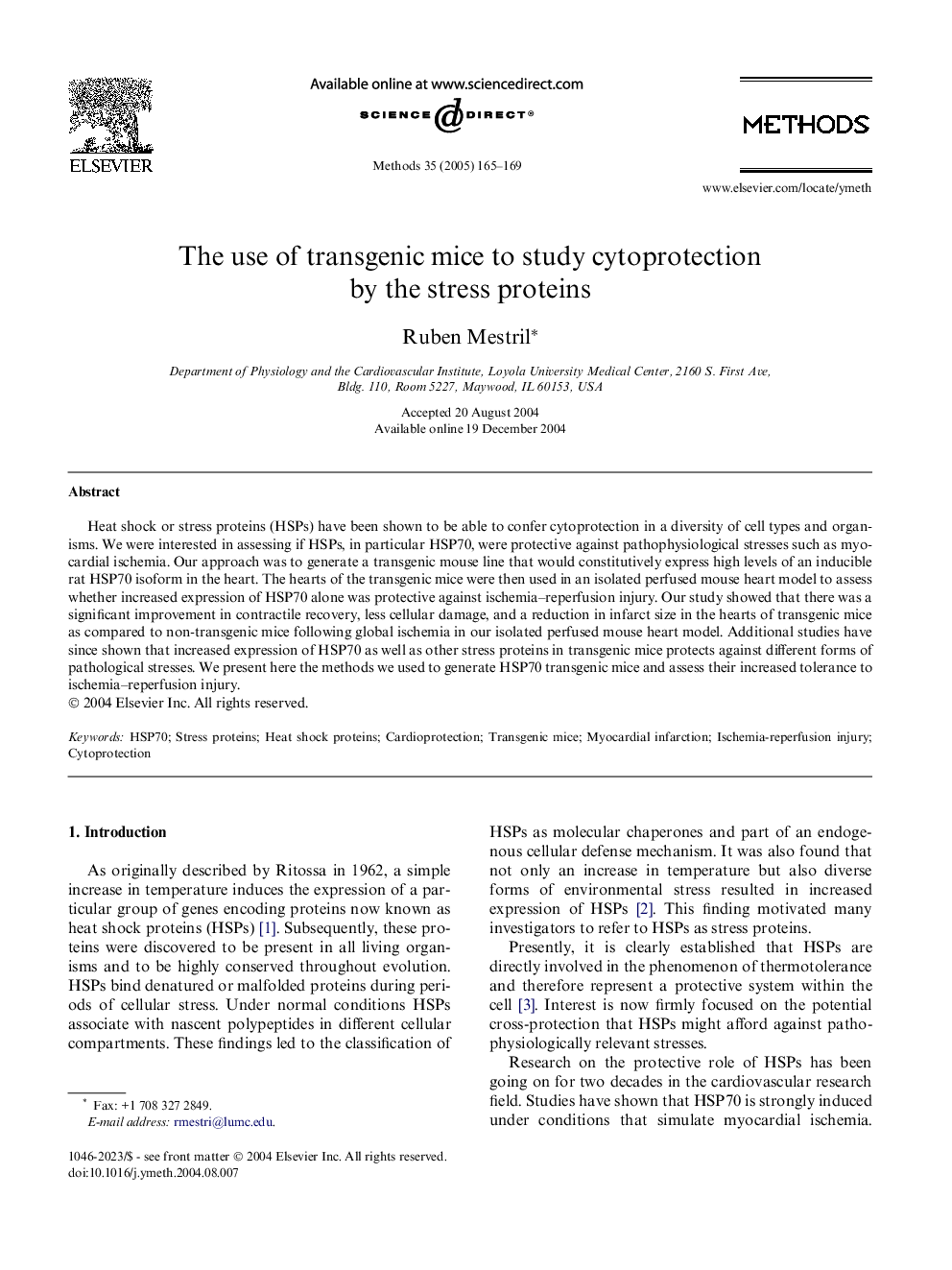| Article ID | Journal | Published Year | Pages | File Type |
|---|---|---|---|---|
| 10826713 | Methods | 2005 | 5 Pages |
Abstract
Heat shock or stress proteins (HSPs) have been shown to be able to confer cytoprotection in a diversity of cell types and organisms. We were interested in assessing if HSPs, in particular HSP70, were protective against pathophysiological stresses such as myocardial ischemia. Our approach was to generate a transgenic mouse line that would constitutively express high levels of an inducible rat HSP70 isoform in the heart. The hearts of the transgenic mice were then used in an isolated perfused mouse heart model to assess whether increased expression of HSP70 alone was protective against ischemia-reperfusion injury. Our study showed that there was a significant improvement in contractile recovery, less cellular damage, and a reduction in infarct size in the hearts of transgenic mice as compared to non-transgenic mice following global ischemia in our isolated perfused mouse heart model. Additional studies have since shown that increased expression of HSP70 as well as other stress proteins in transgenic mice protects against different forms of pathological stresses. We present here the methods we used to generate HSP70 transgenic mice and assess their increased tolerance to ischemia-reperfusion injury.
Keywords
Related Topics
Life Sciences
Biochemistry, Genetics and Molecular Biology
Biochemistry
Authors
Ruben Mestril,
